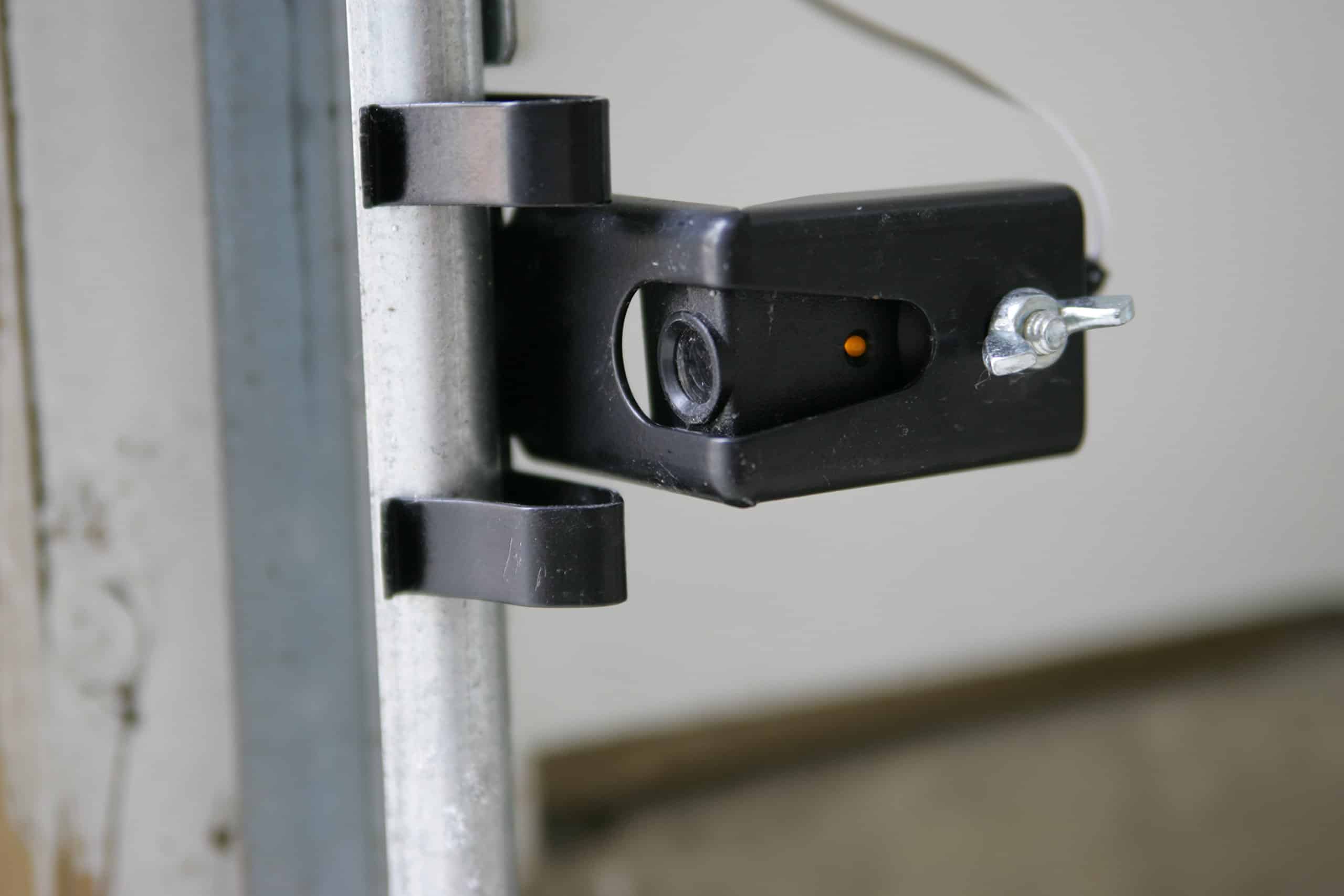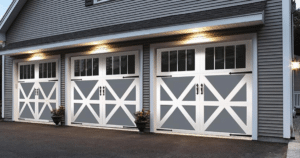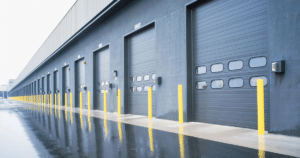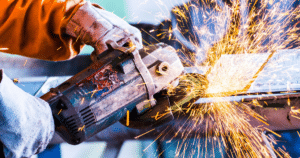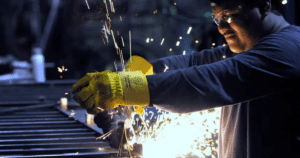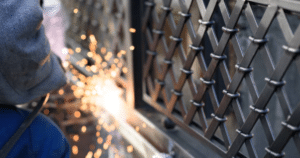Learn about the types of garage door sensors in Roundup, MT, their benefits, and how to maintain them for a reliable garage door system.
Garage door sensors are indispensable for modern automated systems, offering unparalleled safety and convenience. These innovative devices detect obstacles in the path of a closing garage door, preventing accidents and ensuring smooth, reliable operation. By halting or reversing the door upon detection, they safeguard people, pets, and property, making them a critical feature for any automated system. This guide explores how garage door sensors work, common issues, maintenance tips, and choosing the right sensors to keep your system running efficiently for years.
For expert installation services, visit Garage Door Installation.
How Do Garage Door Sensors Work?
Garage door sensors utilize advanced technologies to ensure the safety and functionality of your system. Installed near the base of the garage door, these sensors emit an invisible beam of light that creates a virtual safety barrier to detect any obstructions.
Infrared Beams
An infrared beam connects the sensors on either side of the door to detect interruptions. If this beam is broken—by an object, person, or pet—the sensors immediately signal the door opener to halt or reverse the door’s movement, preventing potential accidents or property damage.
Types of Sensors
- Photoelectric Sensors: These are the most commonly used sensors. They employ infrared beams for reliable and accurate obstacle detection. Their simplicity and effectiveness make them ideal for residential garage systems.
- Pressure-Sensitive Sensors: These sensors detect physical pressure on the garage floor, offering additional safety in some setups. Although less common, they provide valuable protection in certain situations.
- Smart Sensors: These advanced models integrate with smart home systems, allowing remote control and monitoring. They also feature enhanced security functions, such as sending real-time alerts to your smartphone.
For a deeper dive into advanced systems, check out Liftmaster Garage Door Openers.
Benefits of Garage Door Sensors
Garage door sensors enhance the functionality and usability of your automated garage system. Their core benefits extend beyond safety, encompassing convenience and compliance with safety standards.
Safety
Garage door sensors prevent the door from closing on obstacles, significantly reducing the risk of accidents. They help protect people, pets, and vehicles from harm, ensuring peace of mind for homeowners.
Convenience
These devices ensure smooth and uninterrupted garage door operation, even in high-traffic settings. Integrated smart technology allows users to monitor and control their garage doors remotely via mobile apps, adding a layer of modern convenience.
Regulatory Compliance
In many areas, garage door sensors are mandatory to meet safety standards. Complying with these regulations enhances safety, boosts property value, and ensures long-term reliability.
For preventative care and maintenance, visit Garage Door Maintenance.
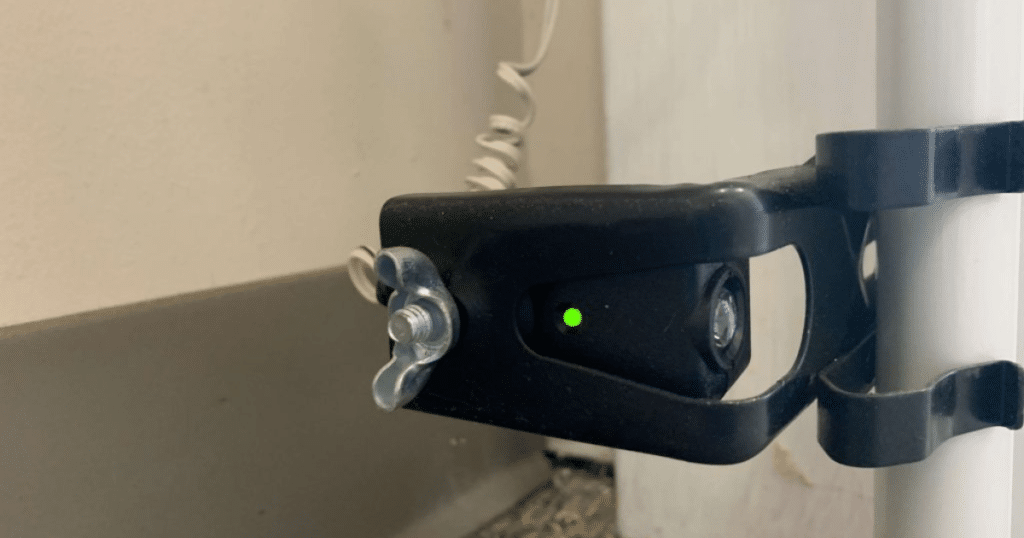
Common Issues and Solutions
While reliable, garage door sensors can experience problems that disrupt their functionality. Addressing these issues promptly ensures smooth operations and maintains safety.
Dirty Sensors
- Problem: Dust, dirt, or cobwebs can accumulate on sensor lenses, blocking the infrared beam and causing malfunctions.
- Solution: Gently clean the lenses with a soft cloth, removing all obstructions. Regular cleaning every few months can prevent this common issue.
Misalignment
- Problem: Sensors must be aligned to maintain the infrared connection, but accidental bumps or vibrations can cause misalignment.
- Solution: Adjust the sensors until both indicator lights are steady. Using a level can help ensure proper alignment and avoid disruptions.
Faulty Wiring
- Problem: Frayed, loose, or damaged wires can interrupt the electrical signal, causing the sensors to fail.
- Solution: Inspect wires for visible damage and contact a professional for necessary repairs. Regular checks can prevent long-term wiring issues.
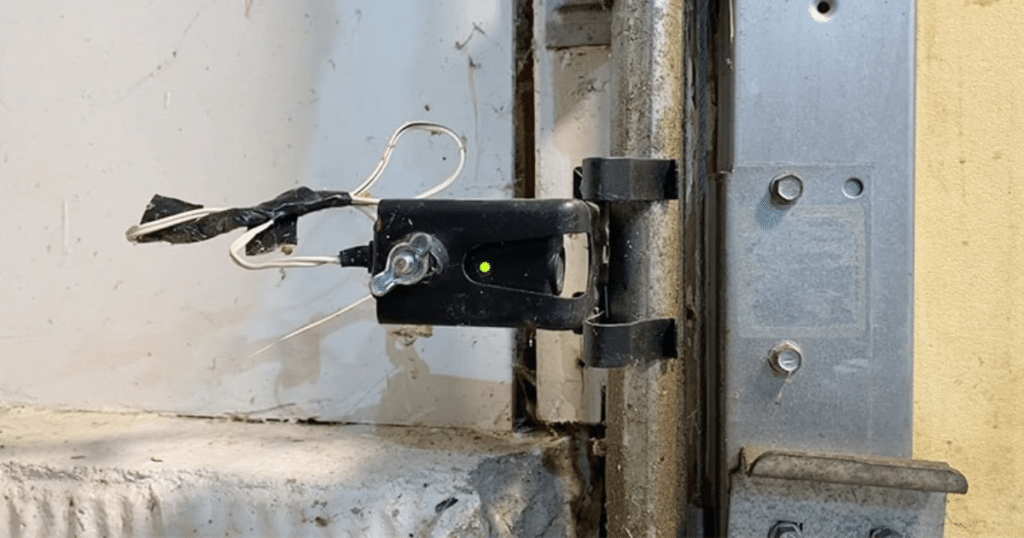
Obstruction in the Sensor Path
- Problem: Objects like tools or toys blocking the infrared beam can prevent the door from closing properly.
- Solution: Clear the area around the sensors to ensure no objects interfere with their operation. Keeping the space tidy reduces the likelihood of this issue.
Environmental Factors
- Problem: Extreme weather, such as rain, snow, or direct sunlight, can affect sensor performance.
- Solution: Cover sensors to shield them from environmental impacts. During adverse weather, remove any accumulated moisture, snow, or ice.
Sensor Damage
- Problem: Physical damage, such as cracks or dents, can render sensors unresponsive or ineffective.
- Solution: Replace damaged sensors to restore functionality. Professional installation ensures compatibility with your system.
Interference from Other Devices
- Problem: Wireless devices like routers or remote controls can disrupt sensor signals.
- Solution: To reduce interference, keep other devices away from the sensors. If problems persist, consult a professional to adjust frequencies.
Power Supply Issues
- Problem: Power surges, outages, or loose connections can cause sensors to stop working.
- Solution: Check connections and use surge protectors for the garage system. Persistent issues may require professional evaluation.
Maintaining Garage Door Sensors
Routine maintenance ensures the longevity and efficiency of your garage door sensors. With proper care, you can minimize the risk of malfunctions and extend the lifespan of these essential components.
- Clean Lenses: Wipe down the sensor lenses every 2–3 months to remove accumulated dust, debris, or cobwebs. Keeping the lenses clear ensures unobstructed communication between the sensors.
- Check Alignment: Regularly verify that the sensors are correctly aligned. Misalignment can occur due to vibrations or accidental bumps and should be corrected immediately to avoid operational disruptions.
- Inspect Wiring: Periodically inspect the wiring for signs of wear or damage. Promptly addressing frayed or exposed wires prevents signal interruptions and ensures safe operation.
For detailed maintenance services, explore Commercial Doors Preventative Maintenance.
When to Replace Garage Door Sensors
Even with diligent care, garage door sensors have a finite lifespan and may require replacement over time. Upgrading to newer models can enhance safety, reliability, and functionality.
Persistent Malfunctions
If your sensors continue to malfunction despite cleaning, alignment, or minor repairs, it may be time to replace them. Consistent failures are a strong indicator of internal damage or outdated technology.
Aging Components
Garage door sensors typically last 7–10 years, after which they may degrade or fail to meet modern safety standards. Replacing aging sensors ensures continued efficiency and compliance with current regulations.
System Upgrades
Modern sensors offer advanced features like motion detection, smartphone integration, and energy efficiency. Upgrading to smart sensors can significantly improve the safety and convenience of your garage system. For advanced options, visit Genie Garage Door Openers.
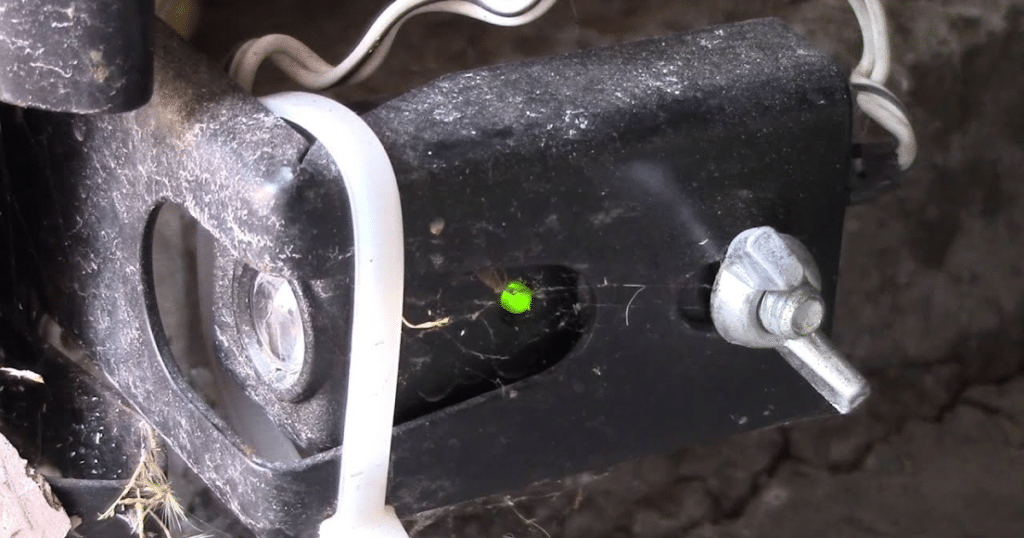
Professional Installation and Replacement
Replacing garage door sensors can be a complex task requiring precise alignment and technical expertise. Professional installation guarantees compatibility and optimal performance, avoiding potential errors. For expert guidance, check out Garage Door Openers.
Advanced Features in Modern Sensors
Technological advancements have significantly improved garage door sensors, offering smarter and more durable options.
- Smart Integration: Modern sensors connect to smartphone apps, enabling users to remotely monitor and control their garage doors. Alerts notify you if the door is left open, enhancing security.
- Motion Detection: Sensors equipped with motion detection can automatically trigger lights when you approach the garage, increasing visibility and safety.
- Durability: High-quality, weather-resistant materials ensure these sensors can withstand harsh environmental conditions, reducing maintenance needs and extending lifespan.
For robust solutions, explore Commercial Door Openers.
Recognizing When to Call Experts
While many sensor issues can be resolved through simple troubleshooting, some problems require professional expertise. Prompt action ensures your system remains safe and functional.
- Wiring Repairs: Frayed or exposed wires pose serious safety risks and should be addressed immediately by trained technicians.
- System Upgrades: Professionals can recommend and install sensors compatible with your existing system, enhancing its safety and functionality.
For expert repair and installation, visit Garage Door Repair.
Choosing the Right Sensors
Selecting the right garage door sensors depends on your system’s type and your specific requirements. The right choice ensures enhanced safety, functionality, and reliability.
- Residential Systems: Photoelectric sensors are ideal for home garages due to their affordability and effectiveness. They comply with safety standards and provide reliable daily use.
- Commercial Systems: Heavy-duty sensors with advanced features best suit high-use environments. Smart sensors offer added convenience and security, especially for industrial applications.
For custom solutions, explore Commercial Door Replacement.
With regular maintenance, timely replacements, and professional guidance, garage door sensors can provide years of safe, efficient, and reliable operation.
Frequently Asked Questions (FAQs)
How do I adjust my garage door sensor?
To adjust, loosen the sensor bracket and gently move the sensor until its alignment matches the opposite unit. Look for a steady indicator light to confirm proper alignment. Once alignment is corrected, tighten the bracket.
Do garage door sensors burn out?
Yes, garage door sensors can burn out due to age, electrical surges, or damage. Replacement might be necessary if they stop working despite being clean and aligned. Professional inspection can confirm whether repair or replacement is needed.
How can you tell if a door sensor is bad?
A bad sensor often shows blinking lights, inconsistent door movement, or failure to close the door. Testing the sensor alignment and cleaning the lenses can help identify issues. Persistent problems usually indicate the need for a replacement.
Can you replace garage door sensors?
Yes, garage door sensors can be replaced if they are malfunctioning. Replacement involves disconnecting the old sensors and wiring in the new ones. Professional assistance is recommended for accurate installation.
How to clean a garage door sensor?
Use a soft, damp cloth to clean the sensor lens and remove dirt or dust gently. Avoid abrasive materials that could scratch the surface. Regular cleaning helps maintain sensor accuracy and efficiency.
Conclusion
Garage door sensors are essential for safety, convenience, and efficient operation in modern automated systems. These devices prevent accidents, protect property, and offer seamless integration with smart home technologies. Regular maintenance, such as cleaning and alignment checks, ensures they perform reliably over time. When sensors become outdated or malfunction persistently, timely replacement with advanced models enhances functionality and security.
Understanding how garage door sensors work and their role in your system can help you make informed decisions about maintenance, upgrades, and replacements. Partnering with professionals for inspections and installations further ensures your garage system remains dependable. Investing in quality sensors and care provides peace of mind and prolongs the life of your garage door system.
End Note
At Hi-Country Dock & Door, we understand how essential a properly functioning garage door sensor is for your safety and convenience. If your sensors are misaligned, malfunctioning, or need replacement, our team is here to help. We specialize in top brands like Liftmaster and Genie openers to ensure seamless operation.
We proudly serve areas like Billings, Roundup, and Bozeman, MT, offering a comprehensive range of services. From emergency repairs to preventative maintenance, you can rely on us for expert care. Learn more about our residential solutions at Garage Doors or explore our full range of services on our homepage.
Let us help keep your garage door safe and functional with our expertise in garage door cable replacements and more. Trust Hi-Country Dock & Door for all your garage door needs. Contact us now.

